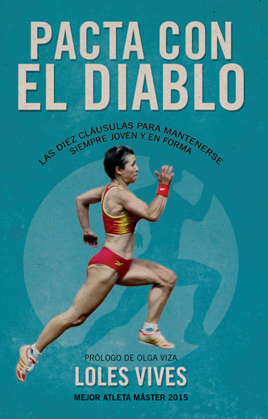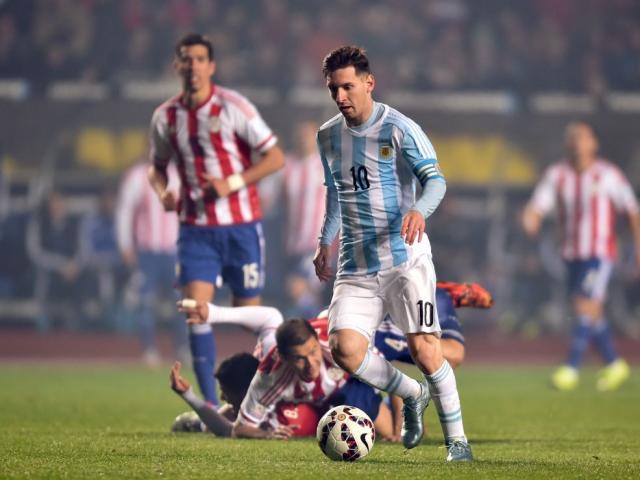Perarnau Magazine
"Volved a emprender veinte veces vuestra obra, pulidla sin cesar y volvedla a pulir". Nicolás Boileau

A different Messi?
After the defeat of Argentina in the Copa América, argentine media and fans everywhere have criticized Leo Messi heavily. For many, the fact that Argentina is not at this stage of the game World Champion or champion of America is the fault of none other than Leo Messi. A real storm of criticism coming from many sides, but especially in Argentina, his home country. Accusations like pechofrío or soulless player have been levelled at the star. For me, grossly unfair qualifiers.
Let me go back to June 2004. I was right in the middle of my football career. It is a hot Friday and I am heading to collect a distinction as best player of the Spanish 3rd division conferred on me by a sports radio station –a prize that fills me with enthusiasm. The gala also recognized several players and successful coaches of the moment. To my surprise, there is a swarm of photographers in the room. Asking one of them why such a large presence, I am told: “We are here to take pictures of a FC Barcelona kid collecting the award for most promising player”.
I go on stage to collect the award and immediately after the PA calls for the appearance of the player… a certain Lionel Messi. A shy type, short and hiding his face behind a curtain of hair. “They are all here because of you,” I say. He leans in a little towards my ear and quietly and with obvious embarrassment only says: “So they say”. Little did I imagine at that time that I was sharing a moment with a child who would go on to become a sporting legend.
After watching him for a just a few minutes, I was overcome by a feeling. This boy who was so shy and uncomfortable in that situation, transmitted a mind set, a nonconformity, a burning desire to win and in his look there was a hunger the likes of which I had never seen before. Don’t ask me why, there are things that are inexplicable, things that football players simply notice.
That is why I find the criticism of the best player I have ever seen on a football field so outrageously unfair. Messi has nothing of pechofrío about him and to doubt his competitive spirit is an outrage.
So Is FC Barceona’s Messi really so different to Argentina’s Messi?
Let’s begin by analyzing the most important data of the final of the Copa Amárica 2015 Chile-Argentina and compare it to Barça:
– Interventions: 81 (average interventions Messi has in the club is around 90). There is not much difference.
– Shoots: 1 (in the Bayern match, Barça shoots 4 times and in the Champions final 3). Here there are differences.
What’s happening? What are the causes? I analyze it tactically and structure it on three basic points:
- Style of play: Despite not having as much time as during the Guardiola period and having applied the aspect of verticality, Barça still has a lot more possession, patience and ability to create spaces than the Argentine selection. It is worth mentioning that Tata’s selection did try. Both the coach (who we notice did transmit the message) and the players (who try) start with this intention but this style of play needs to be felt. It is palpable that the Argentine players do not feel and are not used to that style of play and succumb to impatience.
Messi in Argentina: see direct sequence play Argentina.
Barça’s Messi: Messi custom game maps. Otherwise always decisive in 3/4 field.
Barça’s Messi: his usual reception areas (red) almost overlap with the areas where the games are decided (orange).
Messi in Argentina: reception areas midfield. This keeps him out of his danger zone so he is there far less.
- First pressure: the club has exercised this year, especially in the 2nd half of the season, a lot of post-loss pressure. Very intense and coordinated. This requires work undoubtedly the Argentine selection did not do having neither the time nor the conceptual underpinnings. Barca recovered most balls in opponents half, by contrast, most of Argentina’s recoveries are in their half. This difference means that, at Barca, Messi receives less meters to go before the goal and the most disorganized opposing defense. This result also takes him away from the danger zone.
Sequence showing Argentina-Chile pressure (red circle –> ball position; blue marks –> free players)
Badly executed. There is no coordination between players under pressure and Chile manage to come out cleanly and esily.
- Barça ecosystem: I think this is where we find the main reason for the change that forces Messi to move away from the most dangerous areas. It is a combination of tactical actions of the trident above with the help of the midfield line creating an ecosystem in which Messi is comfortable and which makes him much more decisive.
*Messi on the right: also last season at Barca with Tata, he tried at times to put Messi there. So output positionally there is no difference. The question is clear. Why this difference in protagonism? Barca’s Messi drops back much less midfield to initiate play. We could say that he is very disciplined tactically to keep himself open wide. And the fact is that it causes him to almost always come into play and that it’s important for him to stay there. Instead, with Argentina, Messi had to unclog the team’s departure by coming down to midfield to create superiority and foresight many times.
Messi in Barça: Barça-Atlético de Madrid league (11/01/15). Open on the right.
*Messi always receives with ‘only’ just 1 line to overcome: for me this is the big key. The big difference enabling them to do more damage in attacks is that both Messi and Neymar receive in buffer zones and “only” have one line of defense to overcome. By contrast, Messi in Argentina must break through 2 lines of pressure, markings and covers by many more rivals. These images clearly demonstrate the fact.
Messi in Argentina: reception far behind. 2 lines + many rivals to beat.
Messi in Barça (against Atlético 2014-2015 season): receive in intermediate zone + only 1 line to overcome.
What Barça has that Argentina doesn’t:
a) Good reading of reception areas.
b) At the opposite to play end and especially L.Suárez, keeping the defense high up creating these spaces (marked in orange). A vital and invaluable job!
c) The midfield know when to pressure when necessary but also when to play positionally and also not to eat spaces when the team needed them. This combination of actions causes the distance between lines of rivals to widen and provides more space to Messi. This gives life to his dominating play. See comparative images above.
d) With Argentina this ddoes not happen and this constraint makes him much less decisive. He must come back and help from start of play since selection does not come out easily and he plays little.
e) When does come into play with Argentina, he has 2 lines of pressure to overcome and many rivals to aid + coverage. 5 vs 1 is insurmountable, even for the best.
Little things, little details, the sum of which make Messi not as decisive in games where equality is greatest and where championships are decided. This is probably where the difference comes is to be runner-up and be a champion. In the football world everything is opinions but, as I now turn to my express mine, allow me to give some humble advice. Believe me: never doubt that look!
* Álex Delmàs es exfutbolista y analista.
– Photo: EFE


BUSCADOR DE CATEGORÍAS
BUSCADOR POR MES
ÚLTIMOS TWEETS
Tweets por @martiperarnauSÍGUENOS EN FACEBOOK














